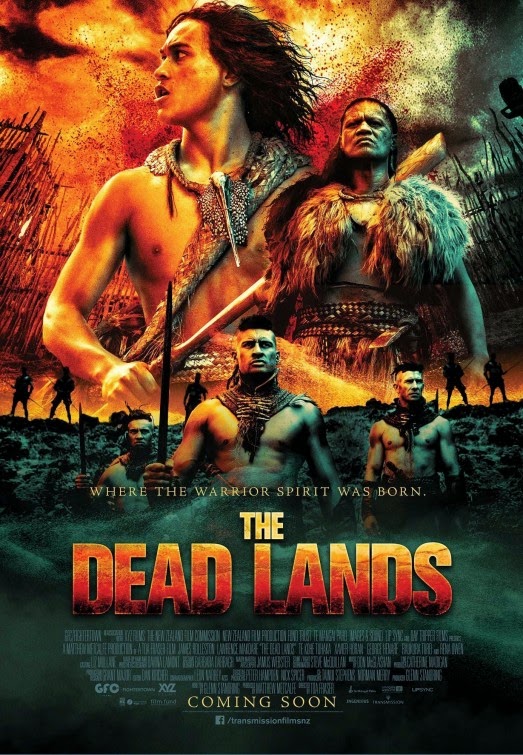Heads Will Roll: "The Dead Lands" numbs before it begins
The Dead Lands (2015)
109 min., rated R.
"The Dead Lands" may be the first New Zealand Maori-language action epic to shed a light on the country's indigenous people, but perhaps how one feels about it comes down to this: if you like this type of movie, you will like this type of movie. Director Toa Fraser and screenwriter Glenn Standring have gone to painstaking lengths to recreate a pre-colonial culture and that goes with the actors speaking the Maori language. The film is angry, brutally violent and barbaric, but it's such a long time coming for the simplistic plot to pick up much steam. After a rather dull first half-hour, where the viewer is ready to just put in the towel, "The Dead Lands" starts to deliver the goods and then goes out with a whimper. Nearly sixteen-seasons old boy Hongi (James Rolleston), the seemingly weak son of a tribe leader, spots rival Wirepa (Te Kohe Tuhaka) desecrating his ancestors' bones. Once Hongi tells his father, Wirepa launches a treacherous attack on Hongi's father's tribe, slaughtering his father and his people with the help from his brutish, bare-chested tribesman. Hongi narrowly escapes with his life and then seeks help from "the Warrior" (Lawrence Makoane), a cannibalistic ghost who haunts the so-called Dead Lands.
Grade: C









Comments
Post a Comment